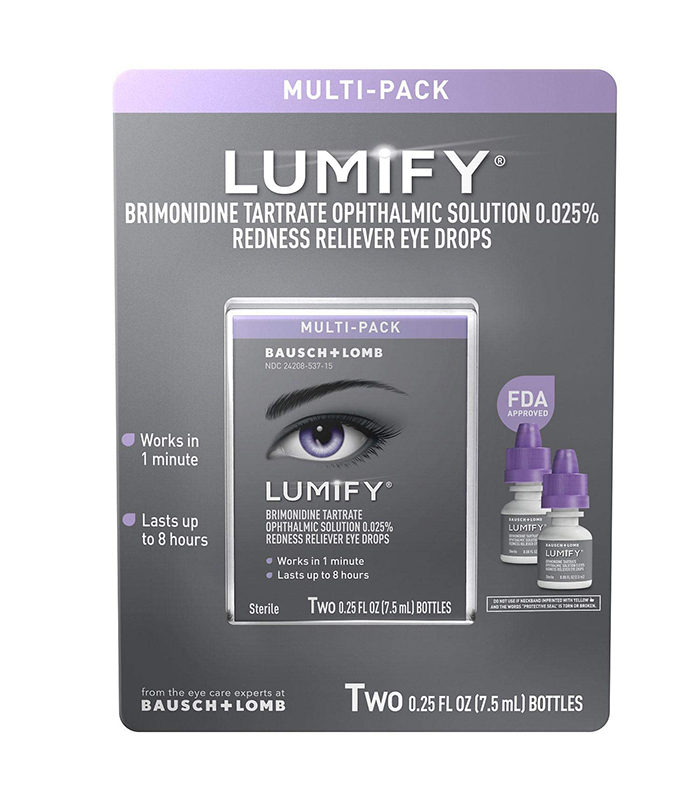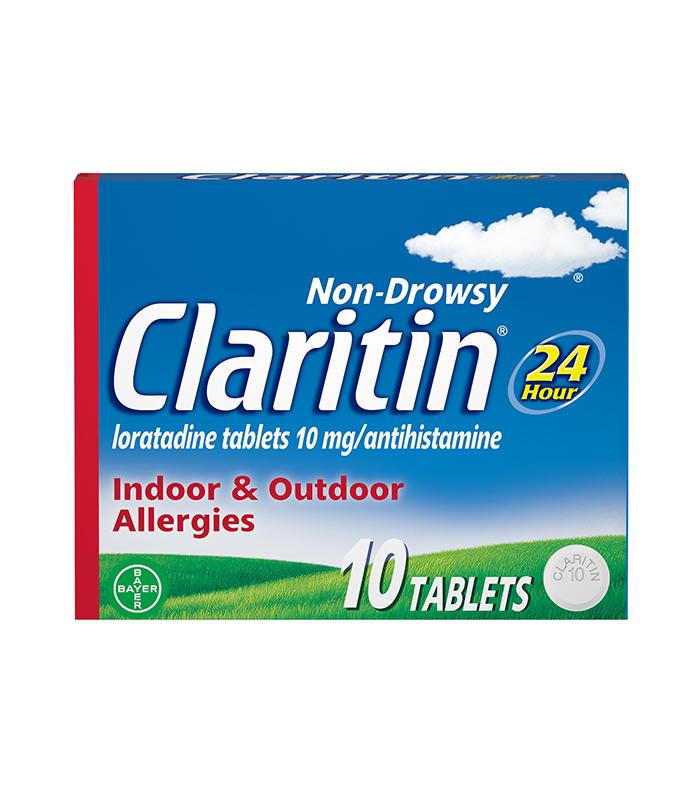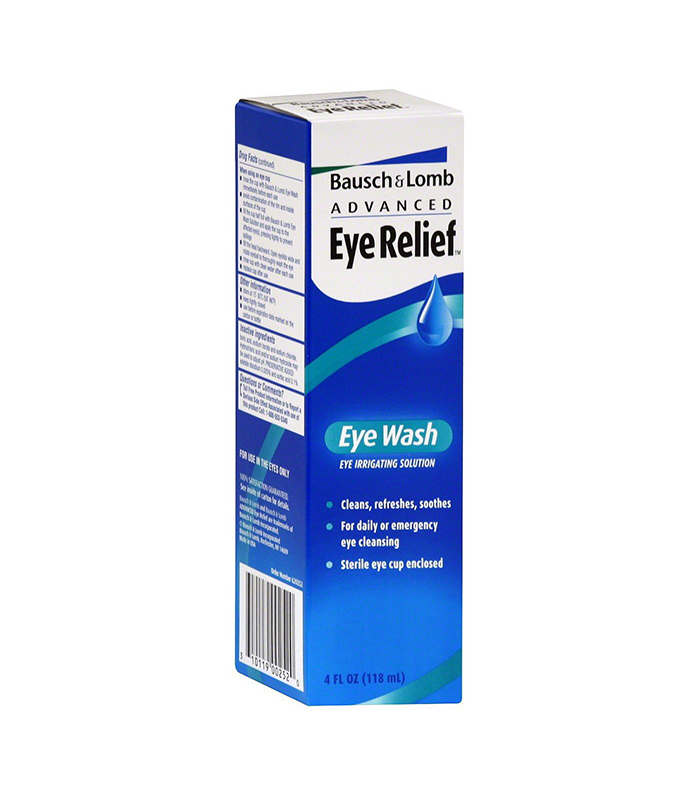This Is Why Your Eyes Get So Red—and How to Prevent It
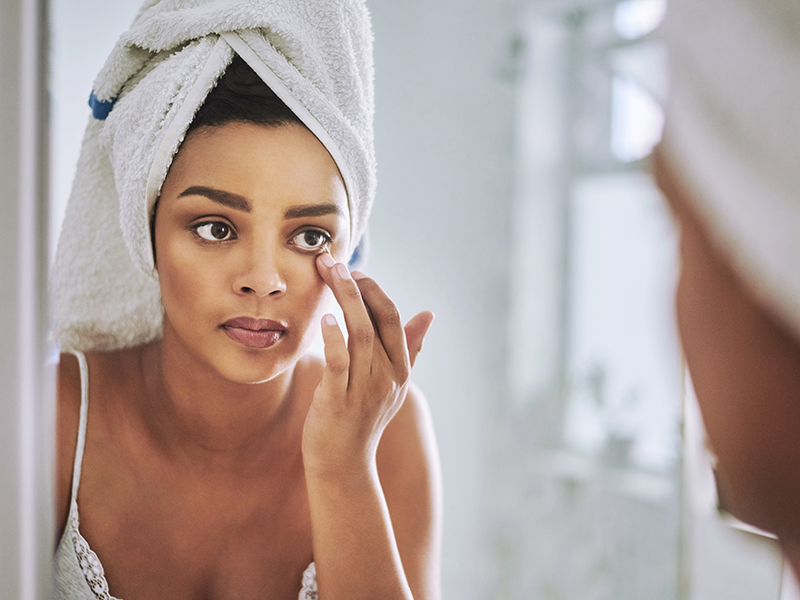
It can be alarming when you look in the mirror and see a pair of bloodshot eyes staring back at you. This is especially true if you feel like you haven't done anything out of the ordinary recently that would cause red eyes. Well, the good news is, for the most part, many cases of red eyes are pretty harmless, according to the American Academy of Ophthalmology. And there are some easy ways to treat them, too. It just depends on what's causing your bloodshot eyes.
To get more clarity, we asked Ashley Brissette, MD, MSc, FRCSC, an ophthalmologist at Weill Cornell Medicine/New York Presbyterian Hospital and spokesperson for the American Academy of Ophthalmology (AAO), about the common causes of red eyes and what to do about them.
The Causes of Red Eyes
While there are quite a few things that can contribute to red eyes, Brissette says there are four that she commonly sees in her practice.
Infection

Red eyes could be a sign you have a bacterial or viral infection, which Brissette says are both contagious and likely warrant a visit to the ophthalmologist. "A viral infection will improve on its own over time, but it can be really severe when you're in the thick of it, and often during cough and cold season, there will be an outbreak," she explains. "And as I mentioned, because it's so contagious, you'll often have had been around someone who was sick recently or been ill yourself, and that virus can spread to the eyes and cause them to be quite red. For bacterial infections, those actually require antibiotics, and that can be a bacteria that's picked up from a recent infection as well."
Allergies

Anyone who gets allergies knows that they don't just affect your sinuses but also your eyes. In addition to the redness, you might also experience swelling and itchiness.
A Broken Blood Vessel
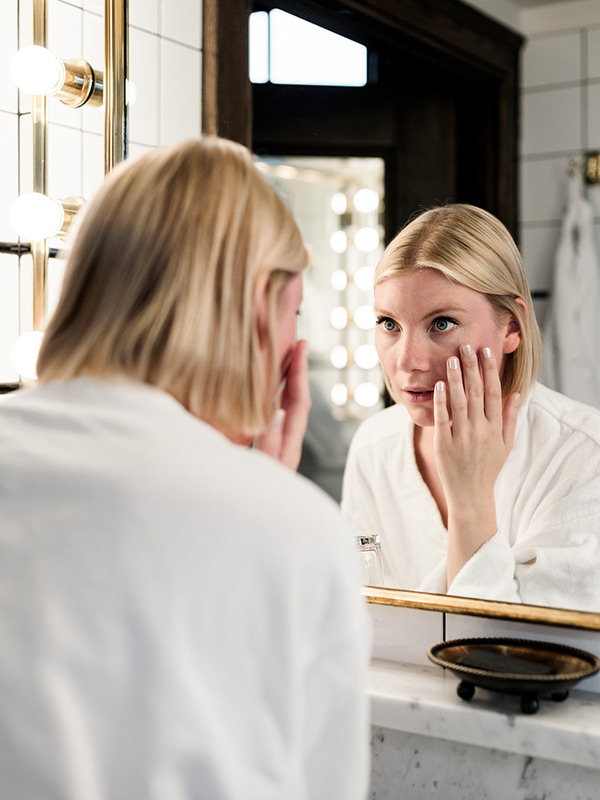
A broken blood vessel can seem really scary. That's because your eye can look really red. While its official name, subconjunctival hemorrhage, seems extremely alarming, Brissette says it sounds and looks worse than it actually is. "The way I describe this to my patients is I say, 'This is like a bruise on the eye,'" she explains. "So it's a broken blood vessel, but because it's on the white of the eye, it looks really severe. But the good thing is that it will go away on its own, and it won't cause any damage to the vision or to the eye."
Some things that might cause a broken blood vessel are rubbing the eye, coughing or straining really hard (like lifting something extra heavy or doing an intense workout), taking out contacts and scratching your eye, or certain medications (like blood thinners).
Again, these will go away on their own, but Brissette says they may take up to a few weeks to improve.
Dry Eyes
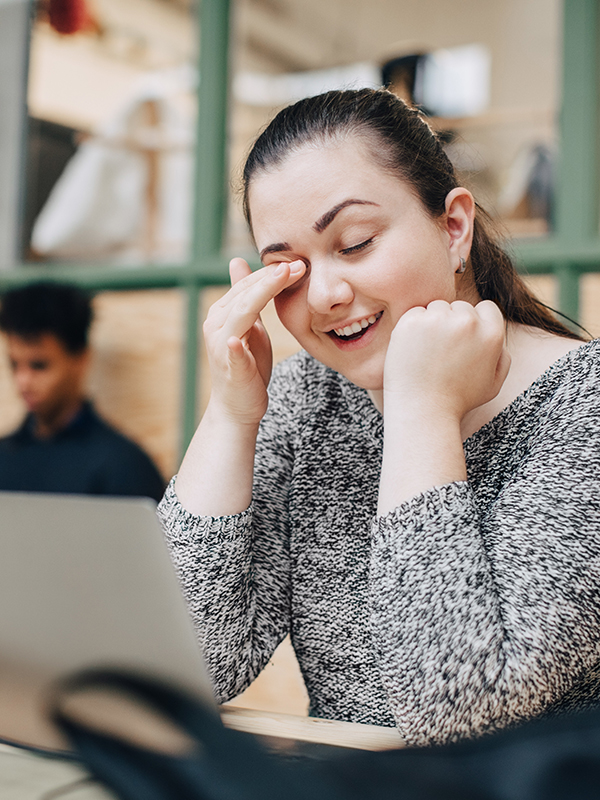
"We know that if the eyes are dry, they can get very red, and they can get very inflamed," Brissette says. "So if you have dry eyes or if you get a lot of computer strain (if you're spending long hours at the computer and your eyes get dry and red), that's a really common cause. The reason is when we're staring at a screen, we blink less because we're focusing so much, and that can really dry out our eyes."
How to Treat Red Eyes
Eye Drops
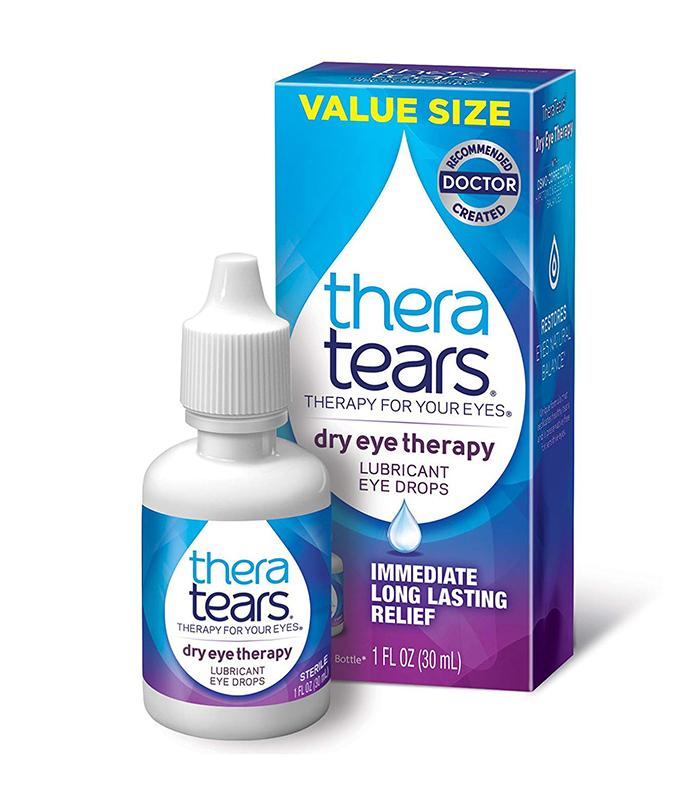
You can use over-the-counter eye drops for allergies or dry eyes, which can help with redness and itchiness, Brissette says. She notes that you should look for drops that are preservative-free if you're using the drops more than four to six times a day since they're a little gentler. And sometimes, you might need prescription drops if the OTC ones don't work, which you can discuss with your doctor.
"I would advise against any eye drops that promise to get the red out," she says. "Those are the ones that are just found over the counter at your local pharmacy. The reason is these eye drops can actually lead to something called rebound redness where your eyes will actually get redder when you stop using them. And that's how they get you to keep buying those drops."
If you need a quick fix, Brissette tells her patients to use the over-the-counter drops by the bran Lumify, but only sparingly, like if you need to go to a special event and your eyes are really red.
Allergy Medications
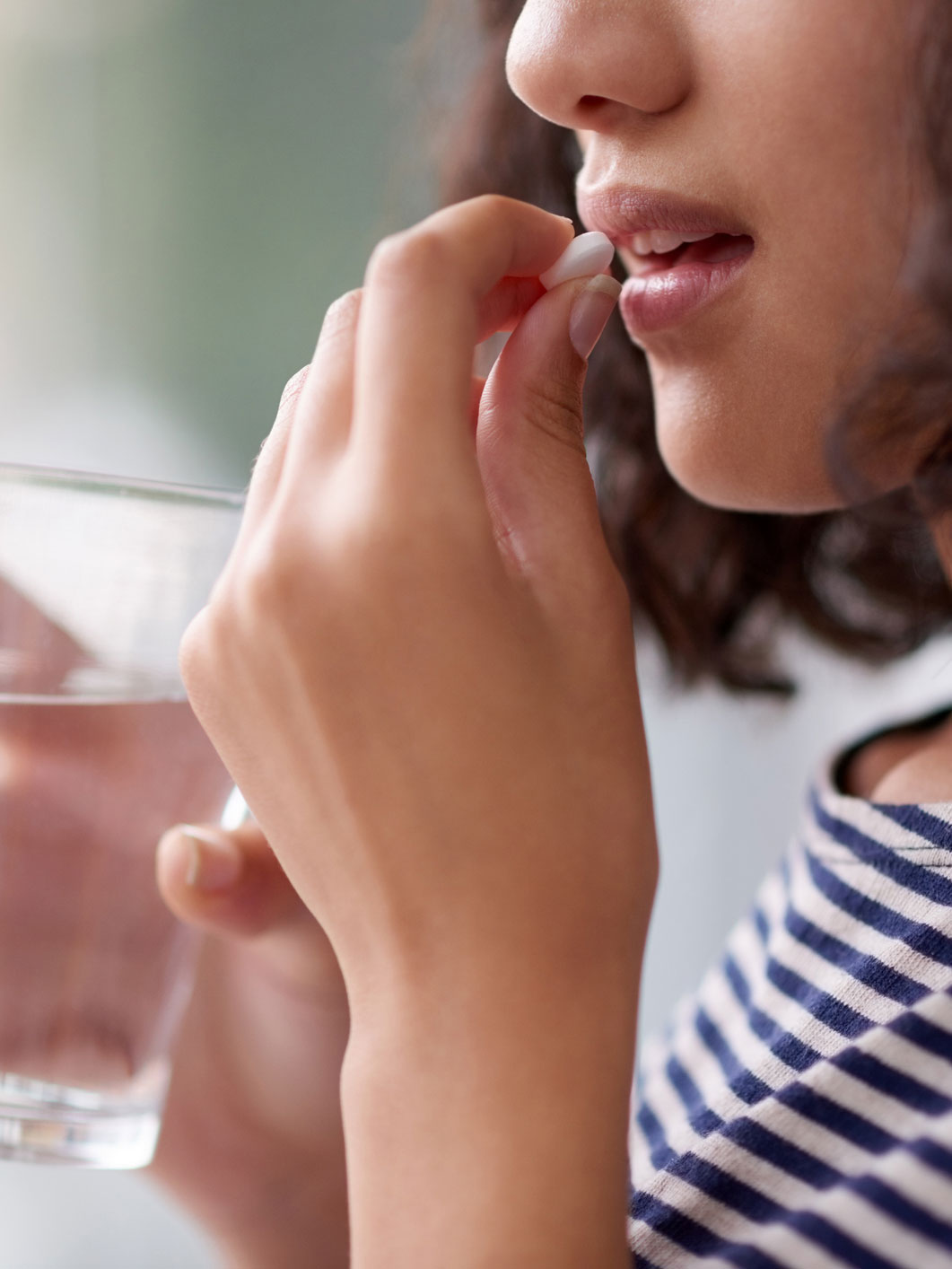
"Even taking an allergy medication by mouth can also help the eye symptoms," Brissette adds. "Sometimes that can help, especially if you know during springtime that your allergies are really bad. Sometimes just taking a daily allergy medication can help with the eye symptoms as well."
Eye Washes
Wash Your Eyelids and Lashes
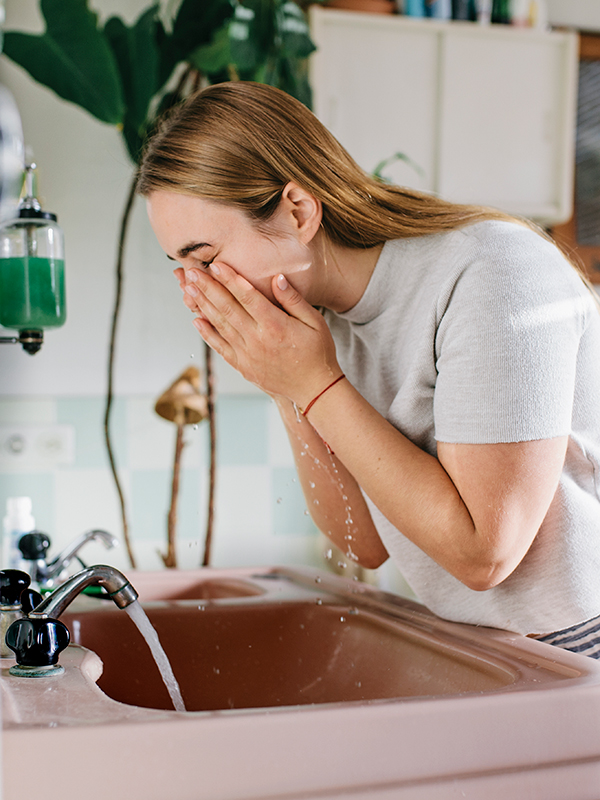
"Just like you brush your teeth every night, not everybody knows that you should actually be washing your eyelids and lashes every night," Brissette says. "I always have patients that are so surprised when they hear that."
Keep Track of Symptoms and Irritants
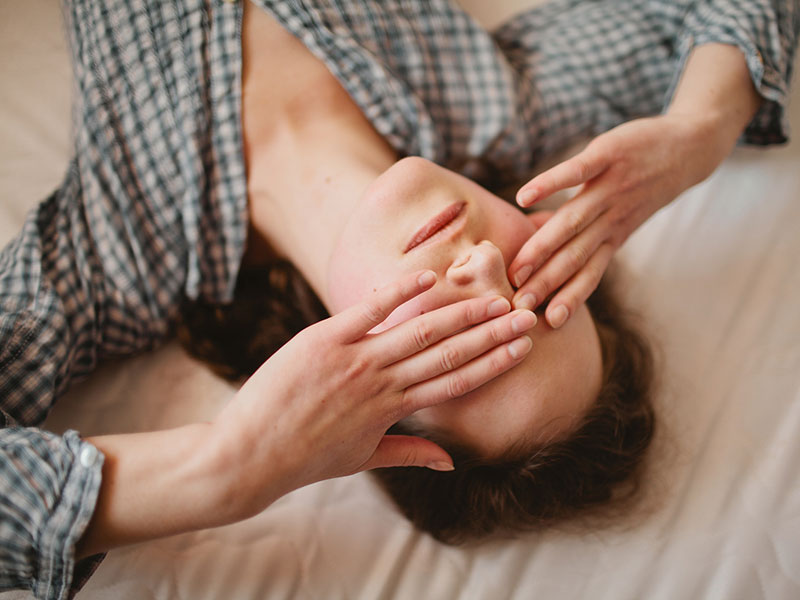
It's important to understand what might be triggering red eyes and avoid any irritants. Some triggers could be smoke, fumes, pollen, dust, chlorine, or pet dander.
Be Careful With Your Makeup
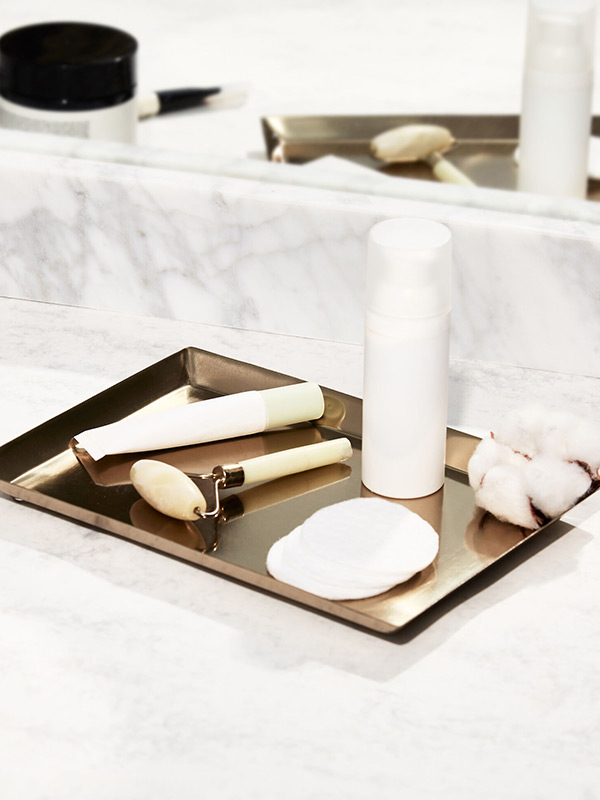
While you don't have to drop your makeup products, you should be mindful if they're causing your eyes to turn red. Brissette says it's important to never sleep with your eye makeup on, as particles can get into the eye. And she advises against tightlining (lining your waterline), which can cause irritation.
Try a Cool Compress
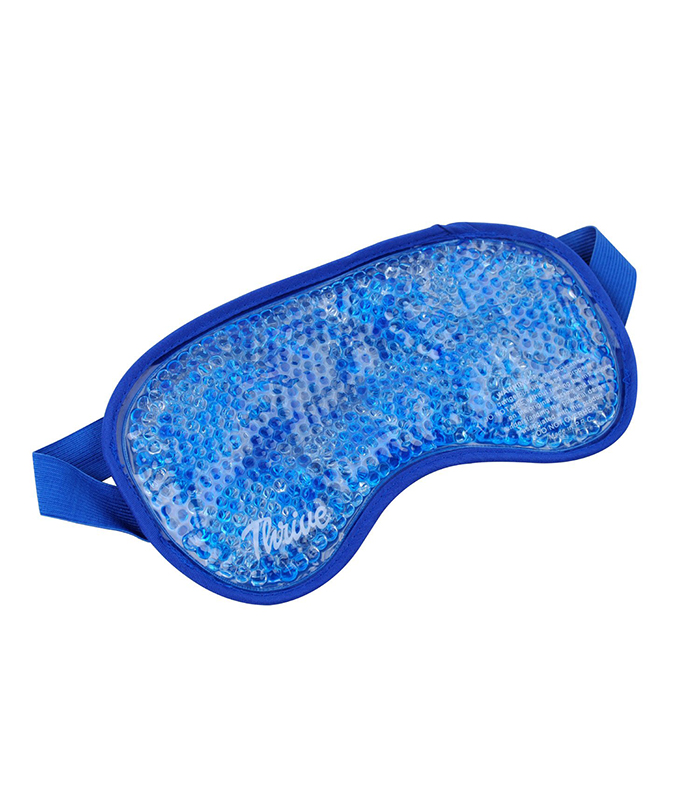
The AAO says one home treatment option is placing a cool compress or washcloth on your closed eyes a couple of times a day.
Wash Your Hands and Don't Touch Your Eyes
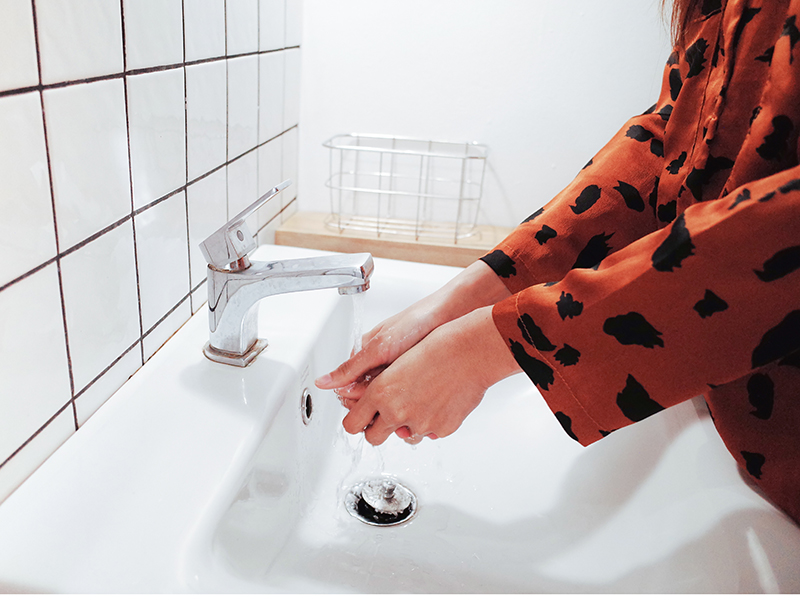
Practice general hygiene rules, like washing your hands regularly and avoiding touching your eyes, per the AAO. Rubbing your eyes can also make the condition worse. Additionally, it's recommended to use clean bedding and towels.
When to See a Doctor
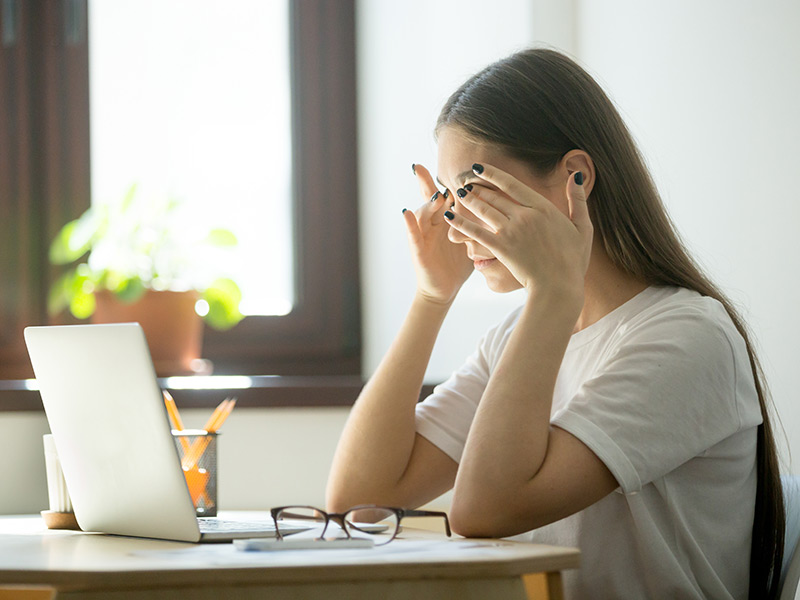
If you tried these remedies and the condition persists, that's a sign you should see an ophthalmologist. "If you're having any discharge from the eyes or if you've had a recent infection or illness, then I would definitely see an ophthalmologist," Brissette recommends. "If you're having pain or sensitivity to light, or if there's any change in your vision, then those are great reasons to visit your ophthalmologist."
Next up: The 10 Best Foods for Eye Health, According to an Ophthalmologist
This article is provided for informational purposes only and is not intended to be used in the place of advice of your physician or other medical professionals. You should always consult with your doctor or healthcare provider first with any health-related questions.
Sarah is lifestyle writer and editor with over 10 years of experience covering health and wellness, interior design, food, beauty, and tech. Born and raised in Los Angeles, she attended New York University and lived in New York for 12 years before returning to L.A. in 2019. In addition to her work at Who What Wear, she held editor roles at Apartment Therapy, Real Simple, House Beautiful, Elle Decor, and The Bump (sister site of The Knot). She has a passion for health and wellness, but she especially loves writing about mental health. Her self-care routine consists of five things: a good workout, “me” time on the regular, an intriguing book/podcast/playlist to unwind after a long day, naps, and decorating her home.
